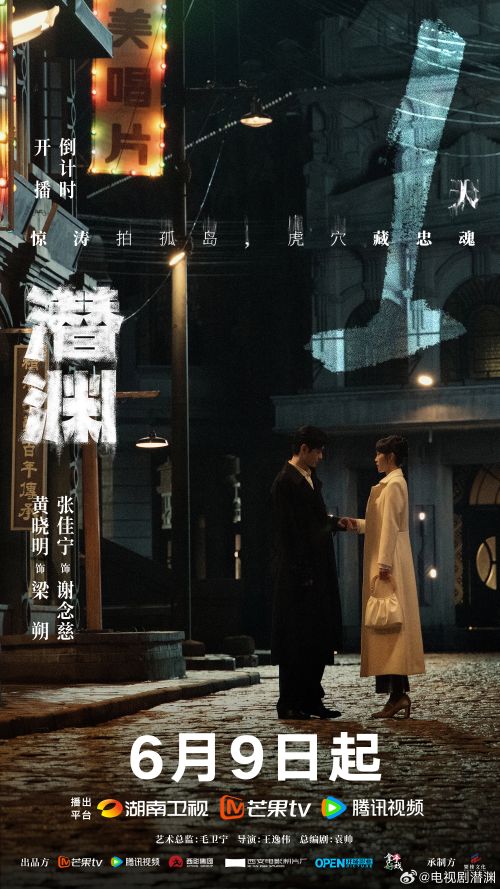
Review: Deep Undercover (2025) 潜渊
Summary: In January 1940, Liang Shuo (ft Huang Xiao Ming) awakens in a remote, snow-covered mountain after sustaining a head injury. He realizes he suffers from amnesia and the only way to find answers is to return to Shanghai. Upon arriving, he finds himself hunted by Japanese forces. This leads him to suspect that he may be an officer of the Nationalist Military Intelligence. In his quest to find answers, he encounters a woman Xie Nian Ci (ft Zhang Jiang Ning) who is actually a member of the Nationalist Military Intelligence. Soon, agents from Wang Jingwei’s puppet Chinese regime’s infamous “Unit 76” also track him down, claiming he is the director of Operations. Liang Shuo tries to solve the mysteries of his past while facing threats from multiple sides.
Platform: MangoTV, Hunan TV
Episodes: 36
Airing Date: June 9, 2025
Final Rating: 7.5/10 – An fun popcorn spy thriller led by the engaging Huang Xiao Ming. He tones down his usual cockiness just enough to play the cunning and compassionate Liang Shuo who is truly deep undercover

Liang Shuo 梁朔 Huang Xiao Ming 黄晓明
Spy who works for the ruthless unit 76 in the service of the Wang puppet regime and Japanese during the Japanese Occupation of Shanghai

Xie Nian Ci 谢念慈 Zhang Jia Ning 张佳宁
Telegraph operator for the National Military Intelligence

Jiang Fei Man 江飞曼 Jian Ren Zi 菅纫姿
Local Shanghainese singer who trades intelligence
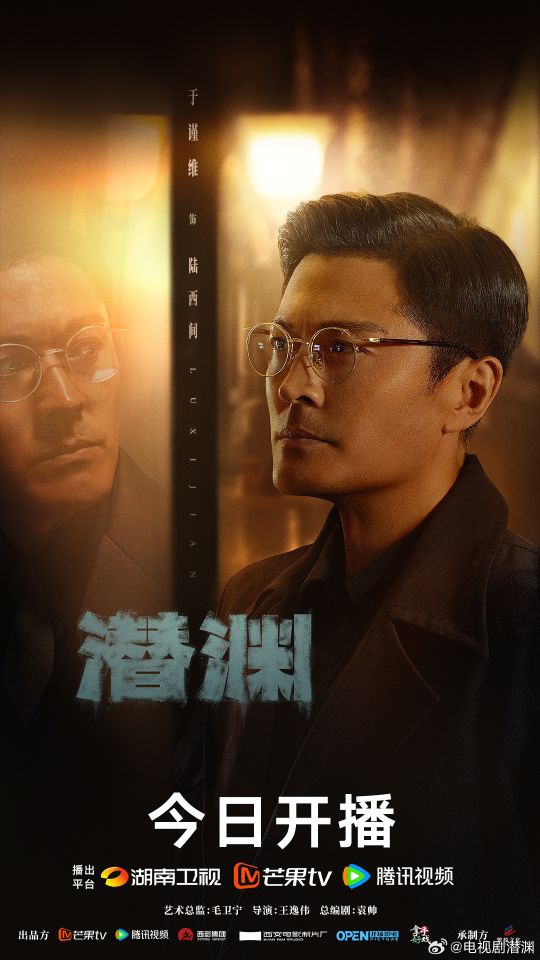
Lu Xi Jian 陆西间 Yu Jin Wei 于谨维
Member of the Nationalist Military Intelligence who is caught by the Japanese

Kiko Hirata 平田希子 艾晓琪
Japanese official in charge of overseeing Unit 76
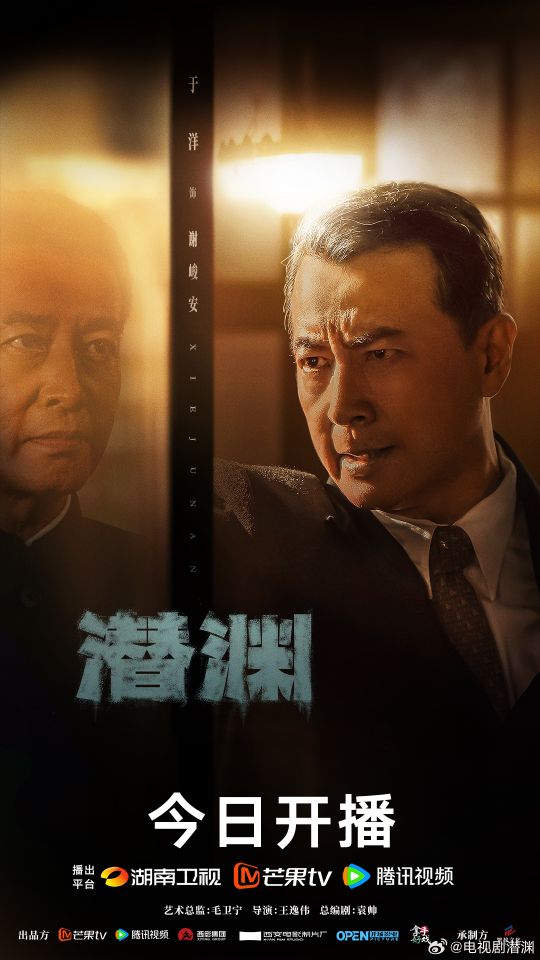
Xie Jun An 谢峻安 Yu Yang 于洋
Top leader within the Nationalist Military Intelligence who arrives in Shanghai
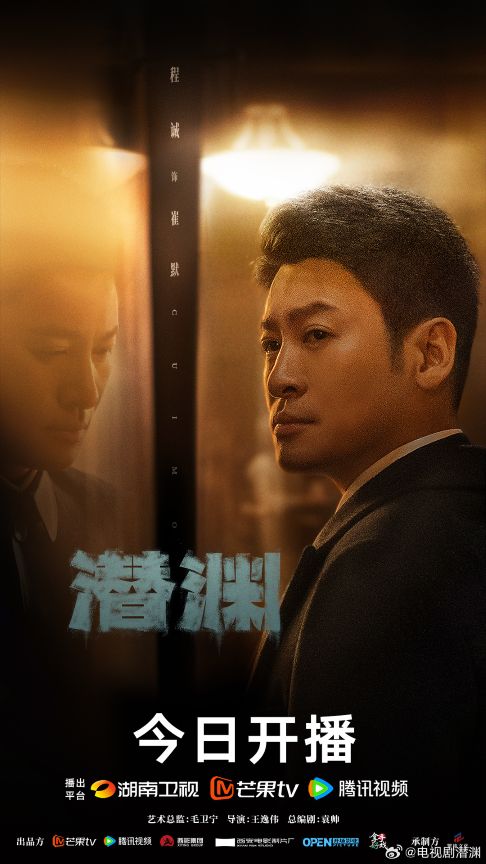
Cui Mo 崔默 Cheng Cheng 程诚
Intelligence officer for Unit 76
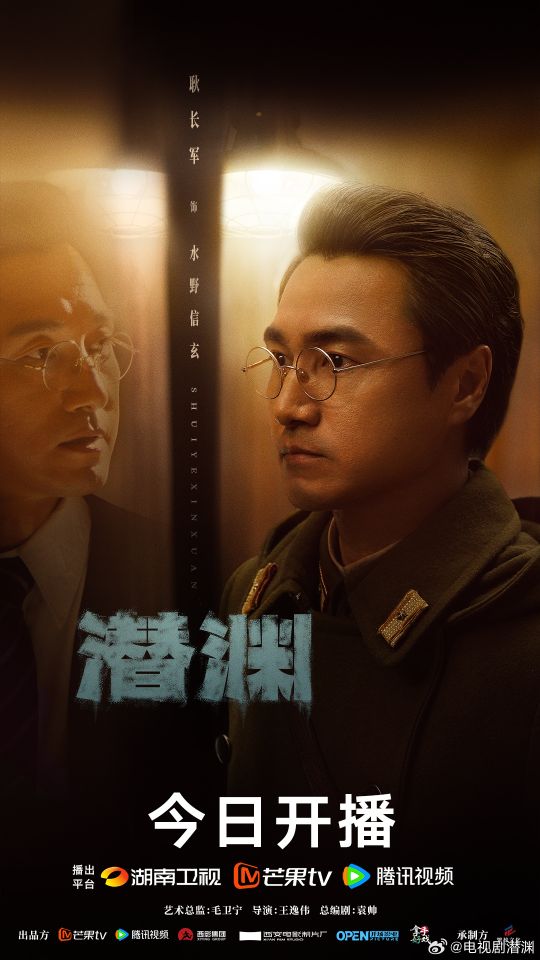
Shingen Mizuno 水野信玄 Geng Chang Jun 耿长军
Leader of the Japanese Military Intelligence in Shanghai
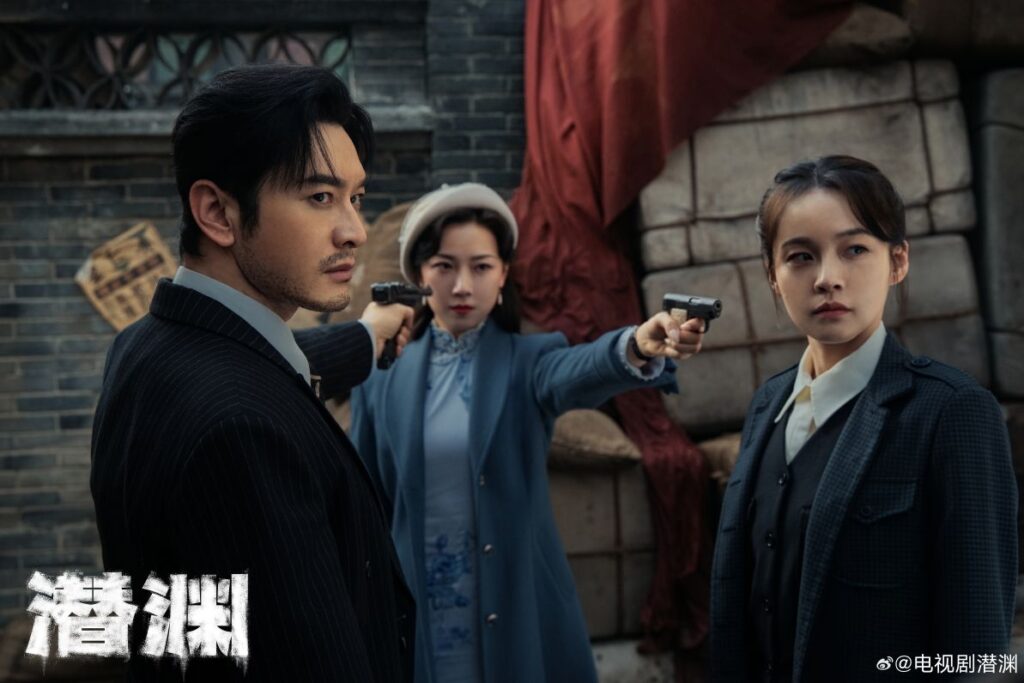
Plot Overview
In 1940, the Japanese have already successfully captured Shanghai and Wang Jing Wei has established his puppet regime in Nanjing, with Shanghai being a stronghold. The Mei Agency, led by Shingen Mizuno, directs Unit 76, the secret police under the Wang Jing Wei regime to ruthlessly suppress anti-Japanese forces in Shanghai. Under the pretense of holding a “Peace and Prosperity Conference”, the Japanese secretly plot further plans to invade China.
Liang Shuo finds himself in the snowy mountains of Manchuria suffering from amnesia with no recollection of who he is, with only hazy memories of a car crash and a shootout. To his surprise, he has many skills including speaking fluent Japanese and superior fighting skills. Finding himself being chased by the Japanese, he makes his way to the closest train station southbound to Shanghai where he believes he will find answers.
On that same trip, Xie Nian Ci is on a simple mission to retrieve documents for the Nationalist Party and is rescued by Liang Shuo. Although suspicious of him, they go their separate ways. Now in Shanghai, Liang Shuo tries to find clues of his past with a puzzle piece he found in his pocket. During his search, he is recognized by some street thugs who give chase, alerting the nearby Japanese forces and members of Unite 76. As Liang Shuo starts piecing the puzzle of his identity back together, he realizes that multiple parties are in search of a stockpile of powerful explosives involving the Japanese forces, Unit 76, the Nationalist Military Intelligence, the underground Communist Party. He must decide who is is truly loyal to.
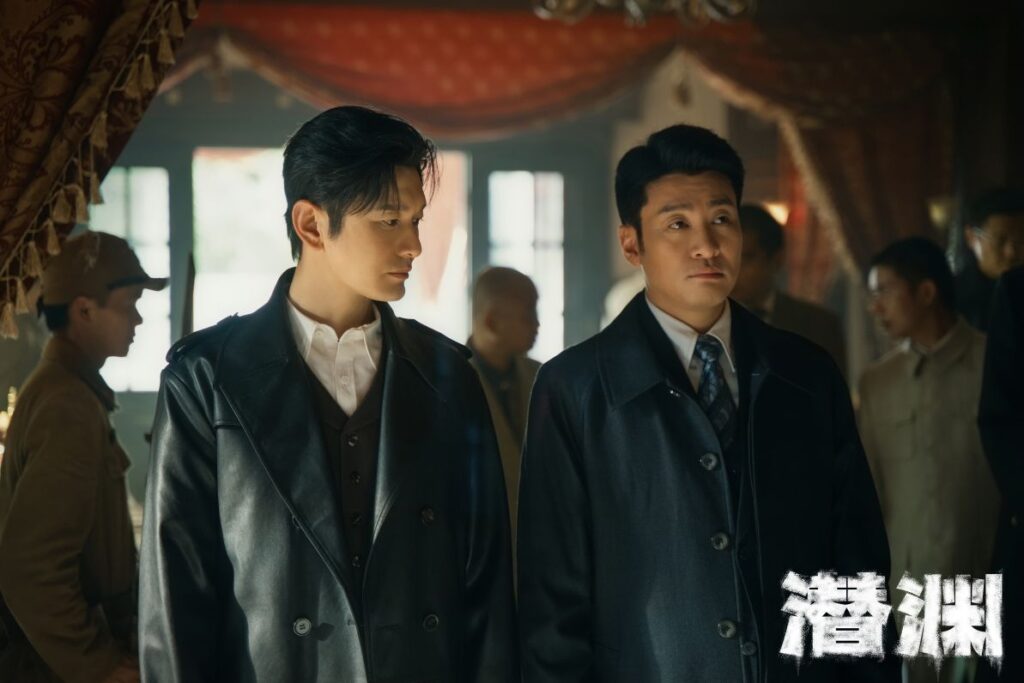
Overall Thoughts
I haven’t seen many World War II dramas in recent years, but I do love a good spy thriller and that’s exactly what this drama delivers. Set in 1940s China, the drama offers a gripping espionage story grounded in the high-stakes world of intelligence work in Shanghai. With multiple factions at play, the tension lies in uncovering where each character’s loyalties truly lie and how their personal desires drive their decisions. Watching how Huang Xiao Ming as Liang Shuo maneuvers through this perilous web is part of the fun.
One of the more compelling elements is the ideological question at the heart of the show: which path should one follow? While the ultimate outcome may be obvious, I mean, it is a Chinese drama after all, the narrative doesn’t fall into simple binaries. The characters are developed enough that you can understand, if not agree with, the choices they make.
Overall, this was a highly enjoyable watch. It was one of those dramas where you can just sit back and get swept up in the story. I didn’t expect to binge watch 10 episodes during a weekend, but this one won out over the other dramas airing in June and July. The drama blends the amnesia-driven intrigue of the Bourne series with the high-octane, against-the-odds action of Mission: Impossible. Watching Liang Shuo piece together his past and pull off daring feats of espionage is consistently entertaining.
The show aired quietly without much media hype, likely because it skews toward a more mature audience. That said, there’s clearly a solid fanbase for this kind of drama. It’s performed respectably, earning a 0.5% rating on Hunan TV, currently the second-highest for any regional network this year, and the highest for Hunan TV itself.
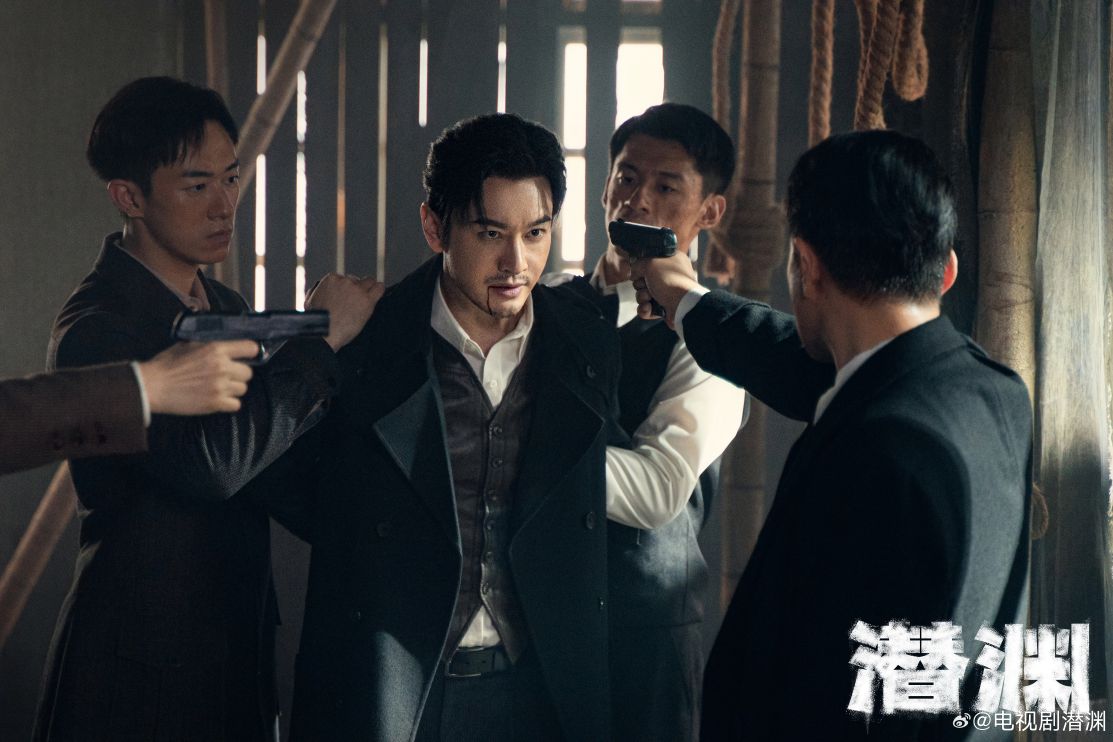
What I Liked - Mild Spoilers Ahead
- Huang Xiao Ming as Liang Shuo! It’s great to see Huang Xiao Ming return to form in a role that truly plays to his strengths. I’ve followed his work for over two decades, and while his performances have had their ups and downs, this portrayal of the sharp and dangerous Liang Shuo is one of his most compelling in years. He tones down the overconfidence and cockiness that has marred some of his past roles and instead brings a calculated intensity to this tormented yet relentless spy. There’s a dangerous edge to his presence, and it certainly helps that Huang keeps himself in top shape. At the age of 48, he looks every bit the part of someone you wouldn’t want to cross. His grasp of the character is impressive; you believe that Liang Shuo could convincingly deceive multiple factions while navigating such a perilous world. I’d gladly welcome more roles like this from him.
- Espionage is front and center – The true thrill of this drama is that there are spies everywhere. While the Japanese forces and Unit 76 appear to be in control, the Nationalist Party and Communist Party are lurking in the shadows. The show is teeming with defectors, double agents, and even sleeper agents, and half the tension comes from trying to figure out who’s playing whom. What makes it more believable is that most characters are sharp and equally ruthless. No one feels oblivious or conveniently naive and understand the stakes, defeat the other side. This makes Liang Shuo’s constant maneuvering a true challenge. At times, he does fail, with serious consequences. The title Deep Undercover couldn’t be more fitting, many characters are buried in layers of deception.
- Brisk Pace for first half – The pacing in the first half is tight and fast-moving. Stakes are quickly established, and layers of intrigue unfold at a steady rhythm. I was genuinely surprised when certain major antagonists were taken out earlier than expected, but appreciated the show’s willingness to keep the plot moving rather than dragging things out unnecessarily.
- Acknowledgement that it truly takes a village –While Liang Shuo is undoubtedly the star and the “super spy” of the show, one of the drama’s strengths is its acknowledgment that he couldn’t survive alone. Whether it’s teammates, allies of convenience, or contacts from the underground resistance, it’s clear that Liang Shuo’s success depends heavily on the support of others. This portrayal adds realism and underscores how monumental the task of resisting the Japanese truly was for both the Nationalist and Communist efforts.
- Japanese language – I applaud the drama’s effort in trying to make the drama as immersive as possible with having the Chinese actors who portray Japanese actors learn, speak, and act in Japanese. The actress for Kiko Hirata was particularly impressive because her Chinese had a Japanese accent. While I can’t personally judge the accuracy of the Japanese pronunciation, I appreciated the commitment to avoiding blanket dubbing and instead having actors genuinely perform in the language.
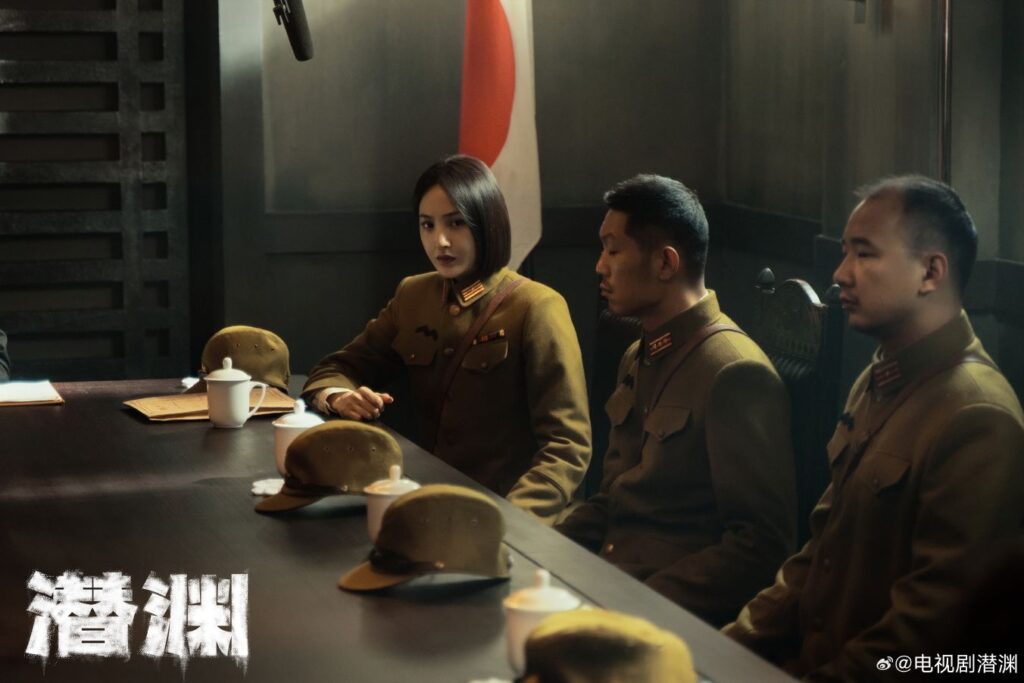
What Needed Work
- Second half slightly dragged on –While the first half of the drama moves briskly, the second half begins to drag. The story builds toward the much-anticipated Peace and Prosperity Conference, yet the timeline around it becomes increasingly vague. Characters keep referencing it, but the event itself doesn’t materialize until the very end. Along the way, the plot detours into a subplot involving a new antagonist, which, while intriguing, slows the momentum. The lack of clarity around the end goal makes the pacing feel disjointed.
- Uneven pacing for romance – The romantic subplot feels like a box-ticking exercise. I couldn’t even tell if it was truly a romance or just building comradery. Anyways, I feel like it was present because spy thrillers are expected to have one, not because the story needs it. Zhang Jia Ning’s portrayal of Xie Nian Ci is serviceable, but she doesn’t quite match the energy or screen presence of the rest of the cast. The issue isn’t chemistry; it’s that the narrative seems to pause just to develop her arc. While I get the intention, offering Liang Shuo some emotional grounding and evolving Xie Nian Ci into a competent covert operative, it often feels like we’re waiting for her to catch up, which slows things down. I would have much preferred her going on missions with Jiang Fei Man than staying behind
- Impossible feats – Look, I understand that Liang Shuo is essentially Ethan Hunt without all the fancy gadgets and can worm his way out of many situations. For the most part, the drama stays grounded, but there are a few moments that stretch believability. One scene, in particular, has him surviving an explosion that kills a main antagonist, and I couldn’t help but laugh. It’s clear Huang Xiao Ming wanted his Mission: Impossible moment and I would like to believe that’s his one request in signing up for the drama, survive impossible acts. Those were fun but do undermine the grounded aspects of the drama.

